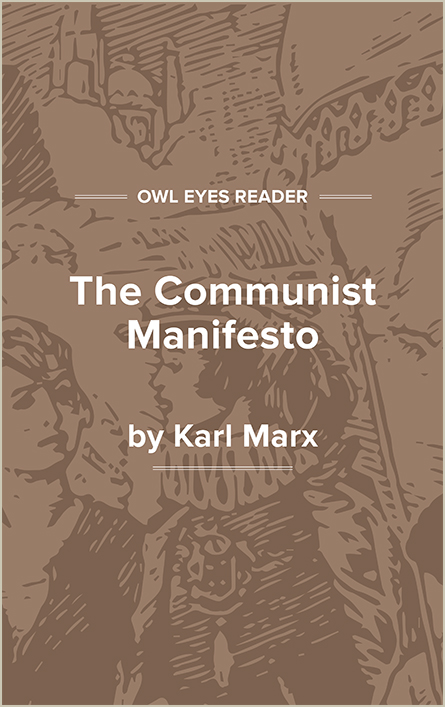Study Guide
Friedrich Engels Biography
Friedrich Engels (EHNG-guhlz) was instrumental in the founding and development of the Communist movement. Brought up in a liberal upper-class milieu in Germany’s Prussian region, he dropped out of secondary school in accordance with his father’s plans to have him help run the family textile firm. From 1838 to 1841 Engels acquired practical business experience in the offices of an export company, while at the same time becoming involved with the nascent revolutionary organizations that sought to overturn Germany’s established governmental and social institutions. After a year of voluntary army service in Berlin, which initiated a lifelong interest in military matters and also led to closer ties with that city’s radical activists, Engels made the acquaintance of the communist theoretician Moses Hess in 1842. It was Hess who provided the intellectual foundation that marked the final stage in Engels’s conversion to communism, while also convincing him that Great Britain was the country most likely to experience a successful working-class revolution.
Thus Engels was delighted to accept his father’s suggestion that he familiarize himself with the operations of the English branch of the family firm, which were based in the industrial city of Manchester. Engels resided in Manchester from 1842 to 1844, where he once again led a double life as respectable businessman by day and revolutionary activist by night. There he met Mary Burns, an Irish factory worker with whom he lived, without benefit of clergy, until she passed away in 1863; Engels would later live with her sister Lizzy on similar terms. His relationships reflected his opposition to the institution of marriage. In 1844 he returned to Germany by way of Paris, where he renewed an acquaintanceship with Karl Marx and cemented the friendship that would eventually produce several classic works of communist literature.
Although Engels wrote several journalistic articles on political and historical topics between 1838 and 1845, it was only in the latter year that his first book, The Condition of the Working Class in England in 1844, appeared. This graphic portrait of how the Industrial Revolution had affected those who labored in its mills and factories was very influential in its day and is still considered one of the classic works of Victorian social criticism. In the same year, Engels and Marx collaborated on The German Ideology, a much more theoretical treatment of the history of German socialist thought that has come to be viewed as an important step in the development of their thinking.
From 1845 to 1848, Engels and Marx were intimately involved in the struggle to convert the working class to the principles of the communist movement. London, Paris, and Brussels were the primary sites of their activity, which concentrated on practical organizational tasks but also produced the document commonly known as The Communist Manifesto in 1848. This masterpiece of incisive political rhetoric was enormously influential in generating support for revolutionary ideals and is an essential document for anyone wishing to comprehend the appeal of the communist movement.
When a series of insurrections exploded across Europe in 1848, Germany became one of the major scenes of struggle between the forces of revolution and reaction. Engels was actively involved in the operation of the Neue Rheinische Zeitung , the Cologne newspaper that Marx edited, which combined reportage of contemporary events with more reflective analyses of broader trends. When the revolutionary movement was finally suppressed, Engels moved to London, where the pressing need for funds led him once again to take up the business career that had been suspended in 1844. Engels eventually became a partner in the Manchester firm that at first employed him in a junior position, and when he sold his share in the company in 1869, he was able to live comfortably on the proceeds of this transaction. As his biographers have noted, Engels...
(The entire page is 1,087 words.)
Owl Eyes subscribers get unlimited access to our expert annotations, analyses, and study guides on your favorite texts. Master the classics for less than $5/month!

